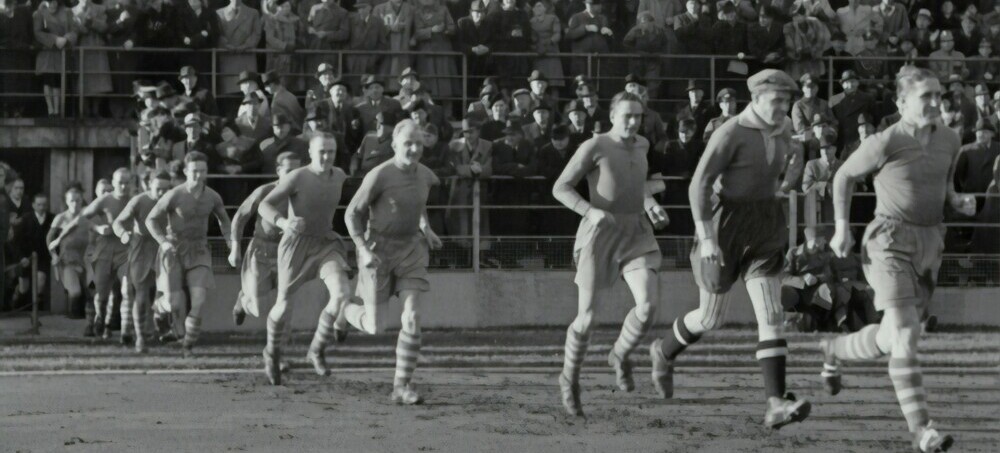 Consider the relentless pace of a soccer match: bursts of speed, constant movement, and split-second decisions. Nutrition plays a key role in empowering soccer players to meet these demands. It’s not just about the calories; it’s about the right kind of fuel to ensure peak performance from kickoff until the final whistle.
Consider the relentless pace of a soccer match: bursts of speed, constant movement, and split-second decisions. Nutrition plays a key role in empowering soccer players to meet these demands. It’s not just about the calories; it’s about the right kind of fuel to ensure peak performance from kickoff until the final whistle.
Macronutrients are the cornerstone of an athlete’s diet, and getting the right balance is crucial. Carbohydrates are essential as they break down into glucose, the primary energy source during high-intensity exercise. Proteins are just as important, aiding in muscle repair and growth. Fats, often misunderstood, are a vital energy source, especially during longer periods of play when the body has depleted its carb reserves.
Another aspect of nutrition often overlooked is hydration. Soccer players can lose significant amounts of fluids and electrolytes during a match, which can lead to dehydration and a decline in performance. Proper hydration strategies before, during, and after games are essential for maintaining optimal functionality.
Each player’s dietary needs will differ based on their position, level of play, and individual metabolism. A tailored approach, addressing these unique requirements, will ensure they can consistently perform at their best.
The transition from understanding WHY nutrition matters to HOW to implement it is critical. In the following section, we will dissect the components of a soccer player’s diet and piece together the elements of a balanced plate that supports sustained performance and overall health.
Building a Balanced Plate: Components of a Soccer Player’s Diet

As a soccer player, your body works like a finely-tuned machine, and you wouldn’t fill a high-performance engine with the wrong fuel, right? The same goes for your body. Understanding the balancing act between carbs, proteins, fats, and essential nutrients is key to keeping your energy levels high and your body in prime condition.
Carbohydrates should take center stage on your plate. They’re your body’s primary energy source during training and matches. Opt for complex carbs like whole grains, fruits, and vegetables, which provide a steady release of energy, rather than a quick spike.
Next up, we address proteins. Think of them as your body’s repair technicians. After you push your muscles to their limits, protein steps in to repair and grow them. Include lean meats, dairy, or plant-based alternatives like legumes and tofu in your recovery meals to help muscle regeneration.
Fats often get a bad rap, but they’re vital to a soccer player’s diet for sustained energy, especially during longer periods of play. Go for healthy fats found in nuts, seeds, avocados, and olive oil to keep your performance top-notch without compromising health.
And don’t forget the supporting cast: vitamins and minerals. These are your body’s catalysts and building blocks for good health. Incorporating a colorful array of fruits and vegetables in your meals ensures you’re getting the array of micronutrients needed to handle the rigors of soccer.
Meal planning is not a one-time setup. It’s essential to align your eating schedule with your training and match routines. A well-timed meal ensures you have the energy when you need it most and aids in recovery and preparation for the next physical challenge.
The Impact of Nutrition on Recovery and Injury Prevention

After a rigorous match or intense training session, recovery is paramount for soccer players. The body needs to repair muscles, replenish energy stores, and prepare for the next bout of activity. Nutrition plays a crucial role in this recovery process.
When I look at muscle recovery, I focus on the post-game meal. The ideal recovery meal includes a good mix of carbohydrates and proteins. Carbs replenish the glycogen stores, while proteins repair and rebuild muscle fibers. As a rule of thumb, I tell players to consume their post-game meal within 45 minutes to an hour after playing to maximize the benefits.
Injury prevention is another area where nutrition holds influence. A diet lacking in essential nutrients can lead to weaknesses in the body, making it more susceptible to injuries. Adequate calcium and vitamin D intake, for example, supports bone strength, while omega-3 fatty acids can help reduce inflammation in the body.
Anti-inflammatory foods are worth mentioning separately. These include cherry juice, turmeric, and fatty fish. Incorporating them into the diet can aid in reducing muscle soreness and speeding up the recovery process. But it’s not just food—hydration also plays a role. Rehydration with water and electrolyte-rich drinks is essential to replace fluids lost during exertion.
I’ve learned that understanding one’s own body is critical in this process, as recovery needs can vary greatly from player to player. It is why player-specific nutrition plans become invaluable.
Conclusion: Scoring Goals with Nutrition Empowering Players for Peak Performance
The lessons from the field extend far beyond strategy and technique; they encompass the critical realm of nutrition. I’ve detailed the profound impact that a well-structured diet has on soccer players. It’s not just about the calories consumed but the quality of those calories and the timing of their intake.
I call upon players to integrate nutritional planning into their training regimes. Make no mistake, attention to diet isn’t a secondary aspect of training; it’s as crucial as drills and workouts. Nutrition is your silent partner on the field, a foundational element that supports everything from sprinting to recovery.
Continuous education about sports nutrition is key. It’s not a one-time lesson, but an ongoing journey as science evolves and we learn more about the body’s needs. Coaches and nutritionists are invaluable in this regard, equipping players with the knowledge needed to make informed food choices.
Players’ success is often measured by goals and victories, but let’s not overlook the personal win that comes with mastering nutrition. It empowers players to not only perform their best on the field but also supports their overall well-being.
To coaches, trainers, and the support systems standing behind every player, champion the cause of proper nutrition. Foster environments where picking the right food is as celebrated as choosing the right pass. The path to peak performance is multifaceted, and a commitment to proper nutrition should be a cornerstone every step of the way.
